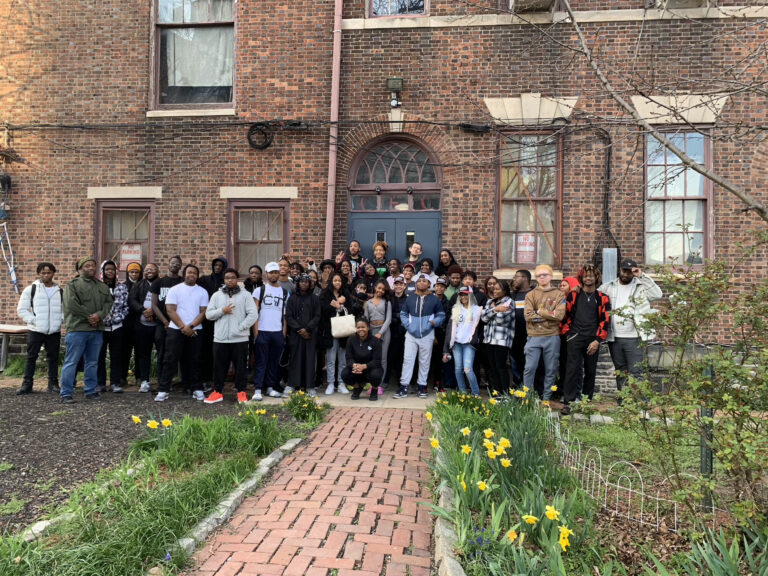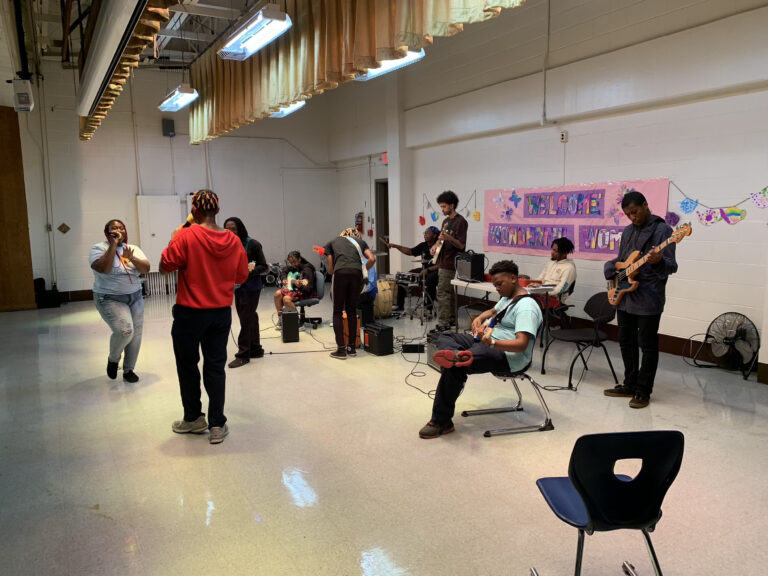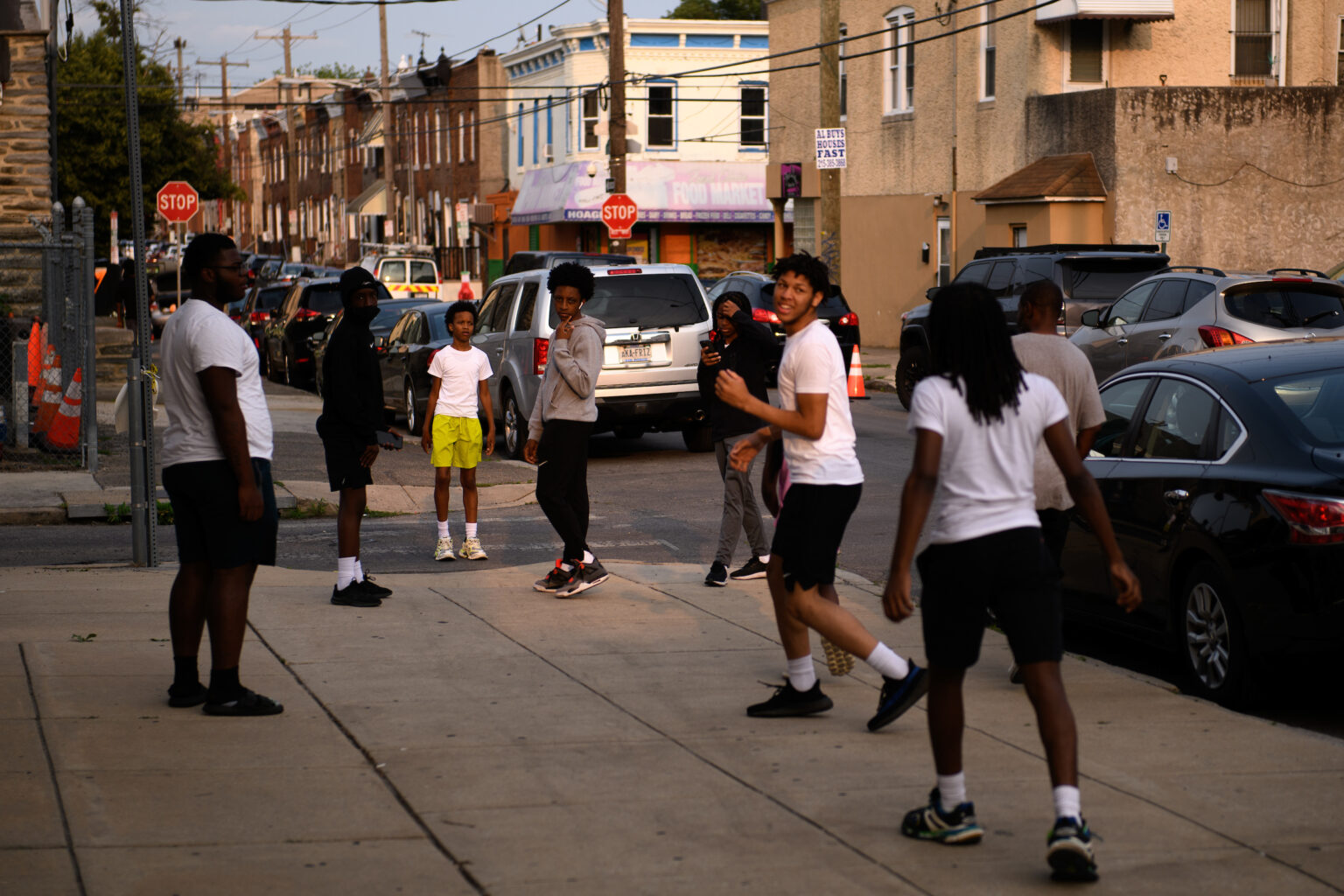Philly’s Violence Prevention Grant Program Brought Mixed Results. Now What?
 June 21, 2023
Category: Feature, Featured, Funding, Republished
June 21, 2023
Category: Feature, Featured, Funding, Republished
Disclosures
This story was originally published by The Trace, a nonprofit newsroom covering gun violence in America. Sign up for its newsletters here.As Philadelphia’s gun-driven homicide rate hit record highs in recent years, the city opened its wallet and started funding grassroots organizations to help reach potential victims and perpetrators.
The most expensive of these efforts, the Community Expansion Grant Program, funded 31 organizations that, starting in late 2021, were to receive a combined $13.5 million for intervention work that wrapped up this spring.
Mothers in Charge used its $305,700 grant to counsel young people who’ve experienced homelessness and incarceration and also introduced them to art as therapy by teaching them to paint. Beyond the Bars used its $117,150 to expand its music program to reach several hundred middle and high school students, teaching them how to write and perform at spaces across the city and in a mobile music lab. The Norris Square Community Alliance and two partner organizations spent $1 million on an array of programming, including creating safe havens for youth where they were taught workforce skills.
“It’s been tremendously positive,” Matthew Kerr, co-founder of Beyond the Bars said of the grant program. “For the longest time, community-based, grassroots organizations have been significantly overlooked.”

Beyond the Bars students pose for a group photo with Mosaic Youth Theater of Detroit after a joint jam session. Courtesy of Beyond The Bars
Gun violence has claimed the lives of nearly 1,600 Philadelphians since 2020 — though the number of fatal shootings has been inching downward since last year. The grant program is part of the city’s $155.7 million push to stem the bloodshed.
But as the city prepares to announce a new group of recipients, news reports and even some grantees are raising questions about the program’s effectiveness, mirroring nationwide discussions about the complexity of measuring success in grassroots violence prevention efforts. Some of the 31 Philadelphia organizations — which received between $100,000 and $1 million apiece — struggled to meet their stated goals. Others have dropped out altogether.
“It’s not a bad program, it just needs some things to be worked out,” said Anton Moore, who leads Unity in the Community, one of the grantees that did not reapply this year. “Now, it’s just not for me.”
The public safety puzzle
Community-based violence interruption programs are a key part of local governments’ response to the nationwide rise in homicides. The Biden administration has contributed more than $10 billion in American Rescue Plan funding to more than 300 communities, including Philadelphia, for anti-violence initiatives. The Philly grant program costs $22 million altogether because of administrative costs.
Despite the push, some critics believe there isn’t enough traditional academic evidence to justify such spending. And measuring success in an emerging field made up mainly of smaller nonprofits — which lack large grant-writing teams and development infrastructure — has proven to be a complicated task.
In late June, the city will likely announce the new round of grantees, and will also make public an independent evaluation of the program, said Amaury Avalos, spokesperson for Erica Atwood, senior director of the Office of Policy and Strategic Initiatives for Criminal Justice and Public Safety. Atwood, Avalos said, will not comment until then.
Atwood has praised the program. “We recognize that law enforcement is just one part of gun violence prevention in Philadelphia and that community-led responses are another critical part,” she said.
But some of the puzzle pieces during the first round of the grant program were a bad fit. Take the case of Put It Down Philly, a violence interruption program co-founded by ex-felon Dawud Bey, which was approved for a grant of $729,696 to expand its program targeting the 18- to 30-year-old men who are at risk of being involved in violence. Despite the organization’s impressive pitch and Bey’s made-for-TV background as a reformed gangbanger, he said that infighting led to the collapse of Put It Down Philly before it could even begin to spend the money to help young men.
“I didn’t necessarily have any problem with the city,” he said. “Our group wasn’t able to get on the same page to be effective and really bring our ideas to the table.”
Despite his organization’s failure, Bey said he’s rooting for the program’s success. “I thought it was an excellent idea because they got with people like myself who come from the streets, who’ve been involved in gun violence, and who actually have innovative ideas,” Bey added.
Also walking away from the program is Moore, whose Unity in the Community was approved for $417,900, but spent only $83,580. Moore said he’s decided not to reapply. “It was a lot of red tape and a lot of distrust,” he said. “A lot of meetings. It was a lot.”
Moore launched his South Philadelphia-based program — which recruits teens and teaches them carpentry, life skills, and provides them with mentors — a year before he partook in the city grant program. While the funding allowed him to grow from serving 25 teens to 32 of them, the grant program would work better if the city paid the grantee organizations all of their approved money upfront, and trusted them to do their work, he said. As it was, organizations got 20 percent of their funding up front and had to submit invoices to be reimbursed for the bulk of the money.
“The city trusted us, but they needed to trust us wholeheartedly, and understand how hard it is. It’s a lot that comes with this work because you’re putting your life on the line working with at-risk youth,” Moore said. Instead of another government grant, he’s now seeking private funding.
Men Who Care of Germantown was awarded $328,000 last year, but received half that funding after it failed to provide all the services it had pledged to, including workforce development classes and quarterly job fairs, The Philadelphia Inquirer reported in April. Still, the organization has reapplied for new funding, said Men Who Care Executive Director Clayton Justice, who declined to reveal how much it requested and discuss his organization’s shortcomings.
“There’s been a lot of grumbling, a lot of finger-pointing. One of the things that we have to be conscious of as a recipient of the grant is being cautious in this process. Because you can’t bite the hand that is feeding you,” Justice said. “Everything is not perfect. As a community organization, we felt blessed to have received the grant. There’s a lot of things that could have been a lot better in the process. We hope that those things will be corrected.”
Assessment above aid
Officials at several organizations that receive grants told The Trace that the city put greater emphasis on hiring evaluators — four in total — than consultants to help them fulfill their missions.
Some said they were concerned to learn that some organizations were not equipped to do the work the city tasked them to do, as was reported in the Inquirer article. Some of the organizations criticized the Inquirer’s report as being racially insensitive to groups working to address a problem rooted in systemic inequity in the Black community.
Still, some said the city should pay closer attention to vetting grantee organizations going forward.
“We fulfilled what was required of the grant, but it was also surprising to see that there were those who received grant funds that didn’t fulfill it. I never understand that,” said Michelle Kerr Spry, program director for Mothers in Charge, a 20-year-old organization founded by mothers who’ve lost children to violence.
Kerr Spry said the grant enabled Mothers in Charge to hire a full-time director to manage its program, which provided 89 people between ages 14 and 21 with four weeks of art classes and four weeks of trauma-informed instruction. They’ve applied for a $400,000 grant to expand their reach to 100 young people and plan to add a parent engagement component.
“There are lots of well-established organizations that could do this work well, that can expand on their programs exponentially if they had more money,” Kerr Spry said. “But if you’re giving money to organizations and not providing the support for them to understand how to do the work, that’s problematic.”
“Don’t set up small organizations to fail,” she added. “There should be some technical assistance, and I really didn’t see that they provided technical assistance in the way in which to develop a program.”

High school students in Beyond the Bars’ Belmont Band program perform together. Courtesy of Beyond The Bars
Kerr, the Beyond the Bars co-founder, said that, going forward, he’d like the city to encourage grantee organizations to work together to provide more services to the community, as his does, locating its music labs in spaces run by nonprofit groups and in city recreation centers. And despite the “hiccups” during the inaugural round, he said, the city should work through them.
“These problems are deeply planned. We got to deeply plan to combat them with healthy, positive, loving systems,” Kerr said. “Just like the school-to-prison pipeline is trying to catch a kid in every single step, we want to be trying to catch a kid in every single step and bringing them into the right community.”
###
What are your thoughts?
How can funders better support grassroots organizations?
What measures should government funders take to enhance the effectiveness of their funding and investments?
What solutions do you have to reduce crime and increase public safety in Philadelphia?
Project
Gun Violence & Public SafetyTrending News










